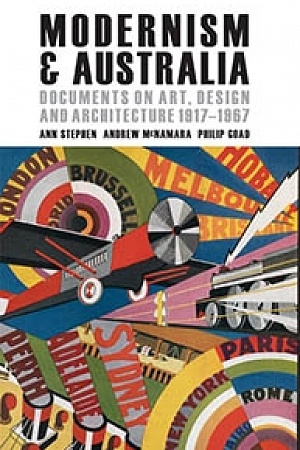Love is Strong as Death: Poems chosen by Paul Kelly
Hamish Hamilton, $39.99 hb, 432 pp
Love is Strong as Death: Poems chosen by Paul Kelly edited by Paul Kelly
The assertion that ‘love is strong as death’ comes from the Song of Solomon, a swooning paean to sexual love that those unfamiliar with the Old Testament might be startled to find there. Songwriter and musician Paul Kelly has included it in this hefty, eclectic, and beautifully produced anthology of poetry, which has ‘meaningful gift’ written all over it.
In a brisk but friendly and content-rich introduction, Kelly addresses the anthologist’s Big Three: parameters, ordering principle, and criteria for inclusion. The first involves a decision ‘… not to include song lyrics … However, when you make the rules, you’re allowed a few exceptions,’ he says, listing the handful of songs included. The ordering principle is simple and strong: the poems appear in alphabetical order by title. This is partly because Kelly didn’t want the book to look ‘textbooky’, but also, he says, because it allows the poems ‘to jostle one another in a democratic manner … [the poets] all get to hang out together and have sparky conversations’.
Kelly’s main criterion for inclusion is also very simple: ‘… if I love a poem, it goes in, no matter how worn out others may think it to be’. This book is a kind of memoir, a self-portrait created not by looking in the mirror but by pointing to the bookcase. It’s clear that his imagined readership is made up of general readers: of people who might choose the book because it was Paul Kelly who chose the poems.
Many of those poems are indeed about love or death, but sex and language also get a good run. ‘Immigrant Blues’ by Li-Young Lee begins: ‘People have been trying to kill me since I was born / a man tells his son, trying to explain / the wisdom of learning a second tongue.’ But Moushegh Ishkhan puts the case for one’s cradle tongue in ‘The Armenian Language is the Home of the Armenian’:
The Armenian language is the home
and haven where the wanderer can own
roof and wall and nourishment.
He can enter to find love and pride,
Locking the hyena and the storm outside.
Like language, sex makes a frequent appearance in this book, often in poems that are ostensibly about something else. Some of the titles are quite startling in this respect, notably ‘Ode to the Clitoris’, and the mystifying ‘Keats Is Dead So Fuck Me From Behind’. There’s also Donne’s classic ‘To His Mistress Going To Bed’, the seventeenth century’s high-culture equivalent of Joe Cocker singing ‘You Can Keep Your Hat On’. Australian poets are also well represented in this field: there’s the tender ‘Why I Love Your Body’ by Dorothy Porter, a breathtakingly erotic poem by Kevin Hart – ‘Your Kiss’ – and another by Alison Croggon, whose ‘Seduction Poem’ is a direct invitation: ‘Unbutton all your weight, like a bird / flying the night’s starred nakedness’.
The alphabetical juxtaposition of poems can enrich the reading of them in unexpected ways, especially if this involves poems you already know well. I felt physically jolted by the sight of two poems I’ve loved since my teens, Yeats’s ‘An Irish Airman Foresees His Death’ and Cavafy’s ‘Ithaka’, sitting side by side. Each of these is a gently closing fist around the heart, and here they reveal their common preoccupations: the idea of home, and the balance of movement and stasis in narratives of progress and moments of equipoise.
Even more surprising is the joint appearance of ‘Lead, Kindly Light’ (hymns and psalms, it seems, get a pass) with ‘Leda and the Swan’, where the newly canonised Cardinal Newman’s gentle, regretful plea for guidance is followed by Yeats’s sonnet about bestiality and rape. But they have something weighty in common: considered in the light of each other, both of them are about obedience and submission to a god.Within the alphabet’s solid and immovable structure there is room for many poems to move across cultures, countries and centuries. Aboriginal writers are well represented, as are poets from across the world. There is a lot of Irish verse, including three mesmerising female laments: translations from the Gaelic of two ancient, anonymous poems, ‘Donal Og’ and ‘The Hag of Beare’, and contemporary poet Paula Meehan’s ‘The Statue of the Virgin at Granard Speaks’:
But on this All Souls’ Night there is
no respite from the keening of the wind.
I would not be amazed if every corpse came risen
from the graveyard to join in exaltation with the gale,
a cacophony of bone imploring sky for judgement
and release from being the conscience of the town.
There are cinematic scenes from The Iliad and The Odyssey side by side with the twentieth-century Israeli poet Yehuda Amichai, clearly a favourite of Kelly’s along with Thomas Hardy. There are poets you’ve never heard of and poems you know by heart. Most of all, there is Shakespeare, represented by a number of sonnets and many of the best-known speeches and soliloquies: Cleopatra’s burning throne; Julius Caesar’s friends and Romans and countrymen; Portia’s quality of mercy; Macbeth’s tomorrows; and Henry V’s speech to his band of brothers upon St Crispin’s Day.
Buy this book of riches and give it to the people you love. Then nag them to learn some of these poems by heart, and learn some yourself. (‘By heart’: what a revealing expression.) If you find yourself in a terrible situation, if you get arrested or your lover leaves or the car breaks down or the fire traps you or you must sit patiently waiting in the emergency ward for news, poetry remembered and recited can lift you up and away, out of the murk to better times.











Leave a comment
If you are an ABR subscriber, you will need to sign in to post a comment.
If you have forgotten your sign in details, or if you receive an error message when trying to submit your comment, please email your comment (and the name of the article to which it relates) to ABR Comments. We will review your comment and, subject to approval, we will post it under your name.
Please note that all comments must be approved by ABR and comply with our Terms & Conditions.